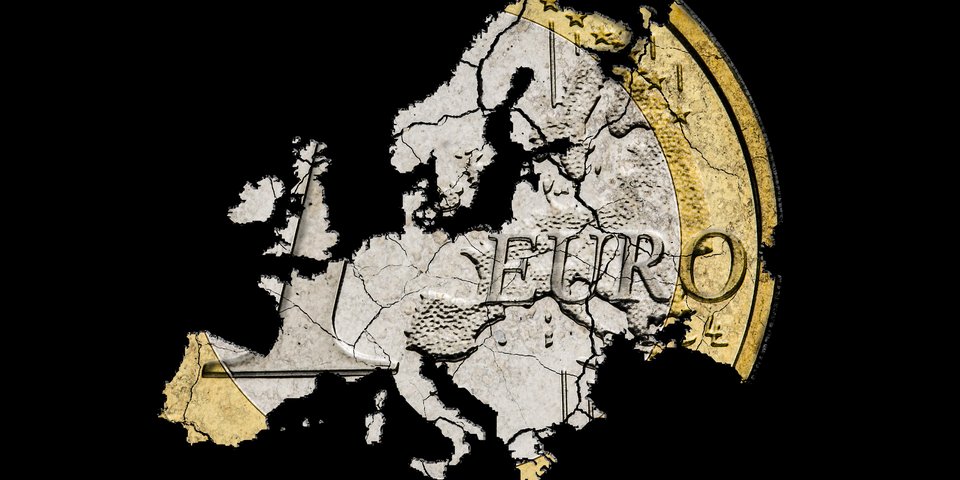 iStockphoto/martinwimmer
iStockphoto/martinwimmerEurope in the debt union
In 2018, it will continue to be important to raise the levels of investment by favourable business conditions throughout the EU.
GD/AD – 01/2018
The Eurogroup, the informal body made up of the finance ministers of the euro area member states, recently stated that Greece is making good progress on its own towards overcoming its current financial crisis. As reported by Spiegel Online, the ECB and IWF are likely to only partially agree with this assessment. Both Greek Finance Minister Euklid Tsakalotos and European Monetary Affairs Commissioner Pierre Moscovici have said that Greece ‘did what it had to do’.
Greece plans to take out loans worth €3 billion from private investors in the summer of this year. According to the online European Debt Clock, Greek national debt had amounted to around €346 billion by the middle of January 2018. This is increasing at a rate of around €18,500 per minute.
France's liabilities amount to approximately €2.276 trillion and increase by around €110,000 per minute. During his election campaign, President Emmanuel Macron had already suggested taking a different direction in French spending and debt policy. Even though France has steadily been building up new debt, observers view improvements in employment figures as an important first step.
The upcoming parliamentary election in Italy on 4 March is likely to cause unrest in Brussels. According to local sources, Brussels is not expecting anything from Berlusconi’s new right-wing coalition or the radical Eurosceptic Cinque Stelle (Five Star Movement) led by political activist Beppe Grillo. According to recent surveys, Grillo has a chance of gaining 30 percent of the vote. All of the potentially promising political forces have one thing in common: a more or less radical rejection of further ‘autarchy compromises’ with Brussels.
Italy's national debt is currently at €2.3 trillion and growing constantly, albeit at a slower rate than France. Viewed critically, many Italian banks are financially stricken but the state is hardly in a position to offset this. If Italy were to enter into a total economic tailspin, there is no mechanism in the EU system that could rescue it.
In the opinion of financial experts, it will remain important in 2018 to raise the low levels of investment in the European Union. National labour market and structural reforms cannot be replaced by support programs, debt financing or even new debt; rather it is the commitment of the private-sector that creates the best chances for economic growth.
